Facing coronavirus (COVID-19): the practicalities of critical illness and the reality of our mortality
 Introduction
Introduction
In a manner not seen in the United Kingdom since World War Two, the COVID-19 crisis has brought death and dying – society’s greatest taboo – to centre stage. Whether we would like to admit it or not, even as Christians, we find this a very hard topic to discuss, especially with our closest relatives. However, as pointed out in The Guardian by Palliative Care physician Dr Rachel Clarke, there is now ‘a glaring imperative to confront the topic so many of us long to squirm away from.’ Sadly, we must ensure that some of our relatives are ready to face the possibility of death during this crisis. As Christians, we need to be prepared to discuss the practicalities of critical illness and the reality of our mortality.
The Practicalities of Critical Illness
For most people who contract COVID-19, the symptoms are relatively mild, and they won’t require admission to hospital. However, a proportion, predominantly those with underlying health problems and the elderly, will develop problems with their lung and other organ function that require varying levels of support. Initial treatment is the provision of supplemental oxygen, which can be provided in a standard hospital ward. If a patient becomes more critically ill, the next step may be non-invasive ventilation (NIV), primarily continuous positive airway pressure (CPAP), via either nose or facemask, or else a hood. This is a way of providing some extra support to the patient’s own breathing – they are still awake and breathing for themselves – and the pressure helps splint open congested lungs. If the patient requires more support than this, they may be transferred to an Intensive Care Unit (ICU), where they may be sedated and attached to a ventilator, which would breathe for them. The final ultra-specialised option is to bypass the lungs (and sometimes the heart) and place patients on a machine which performs the function of both (ECMO – extracorporeal membrane oxygenation). As we escalate up these levels of care (oxygen → NIV → ventilator → ECMO), our resources become increasingly limited.
Whilst headlines like ‘Most Frail May Not Get Critical Care’ whip up a media frenzy, the need for the NHS to prioritise the treatments it provides is not new. However, whilst rationing of resources is a reality, it is not and will not be the only reason to choose not to undertake a particular treatment for a patient. With modern medicine, we can feel like gods, able to prolong life indefinitely, but this is not the case. The sad reality is that as we escalate treatment, not only are resources more limited, but poor outcomes are also more likely. In the specific case of COVID-19, we also know that as age, co-morbidities (underlying health conditions) and frailty advance, the outcomes become even worse. It may be hard to accept, but sometimes, even if we do everything, a patient will not survive. Unfortunately, in some cases, intensive treatment may convert what could be a ‘good death’ into a ‘bad death’. Dying in the impersonal context of an ICU is an outcome many would wish to avoid if possible. When people become critically unwell, it is often necessary for doctors to have conversations with patients and their families about what is in their ‘best interests’. To discuss what treatments are appropriate and which likely to be of benefit. These conversations often involve discussions around ceilings of care, ie at what point should we stop trying to keep the patient alive at all costs and instead prioritise comfort care. We also need to consider the suitability of cardio-pulmonary resuscitation (CPR). A patient whose heart stops due to lack of oxygen, as may well be the case in COVID-19, is unlikely to do well even if their heart is restarted. So, it may be suitable to agree to a ‘Do Not Attempt Cardio-Pulmonary Resuscitation’ (DNACPR) order. It is essential to clarify that, throughout all of this, whether you declare a preference for no treatment, full treatment or something in between, we will always care for our patients.
This is particularly pertinent in the current situation where robust hospital infection prevention and control measures often prevent families from visiting their unwell or dying relatives. Many people have a horror of dying due to respiratory failure; they picture gasping for breath and gradual suffocation. Modern palliative care treatment can ensure that people die in comfort, peaceful and almost invariably with any pain and distress under control. With this in mind, some patients, particularly those frail and elderly, might choose not to be treated in hospital but to stay at home with their family with the support of palliative care or ‘hospice at home’ teams. This may allow patients a more natural death, in the comfort of their own home, and in the company of those they love.
In the current crisis, more than ever before, these are conversations that can and should be happening between families, especially where loved ones are at significant risk. This allows the family to better understand a loved one’s wishes before they become too poorly to communicate. This can aid doctors and nurses in understanding what is truly in a patient’s ‘best interests’, helping them to provide appropriate treatments, ensuring those treatments are not overly burdensome and, where death becomes inevitable, ensuring the dying process is a peaceful and comfortable as possible. Some people choose to write an Advance Statement, a written document that sets down their preferences, wishes, beliefs and values regarding their future care. This is not a legally binding document but aims to provide a guide to anyone who might have to make decisions in their ‘best interest’. If written well, an Advance Statement can be flexible, applying to a variety of future circumstances. It will be of great help in enlightening your relatives and prospective clinicians of your wishes. An Advance Statement is different to an Advance Decision (or Living Will), which is a legally binding document (providing certain criteria are met) that one can write to refuse a specific treatment at some point in the future if one were to become unable to communicate one’s wishes. Advance Decisions are potentially more rigid and apply only in the circumstances detailed.
The Reality of our Mortality
It is a relief that COVID-19 is not causing a significant number of deaths in children and newborns. However, as Christians, we believe that God has made everyone equal, and every human life is valuable. Regardless of the future they may or may not have had ahead of them, and their likely outcome from treatment, to deem the life of someone over the age of 70 as of less value than one of 50 or even 15 is wrong. As you talk with loved ones, you must hold in balance the belief that every life is of equal value with the reality that those with significant co-morbidities and frailty are unlikely to survive a critical illness due to COVID-19. We need to acknowledge that whilst we cannot always avoid death, we can avoid unnecessary suffering. There is a time to recognise that ‘enough is enough’. As Christians, we believe in the inherent value of life, but we are not vitalists: we do not need to cling onto life at all costs.
As we try to prepare our relatives for the possibility of death, we must pray for the ability to speak to them too about life after death, however awkward or painful this may be. As Christians, we need to hold in tension our belief that God can answer prayers and heal with the inevitability that we must all die. However, we need never fear death since Christ has conquered sin and death at the Cross. Facing coronavirus is an urgent opportunity to share Gospel hope. Just as Jesus was raised from the dead, we too have a resurrection hope that transcends the grave.
Conclusion
COVID-19 has pressurised the Chinese healthcare system, the Italian, Spanish and other healthcare systems, and it is likely the NHS will also be put under extreme pressure. The NHS is a wonderful institution full of highly dedicated healthcare professionals. When it was created in 1948, it was thought that it would lead to such an improvement in the health of the population that health expenditure would diminish in the future. If this over-optimism might be compared to the hubris of the men of Babel, our current crisis is that tower being knocked down altogether. Humanity’s frailty and loss of supposed control are stark. However, this is all within the sovereignty of a good God. We must pray that in the darkness, pain and fear people meet Jesus. As C.S. Lewis once said, ‘God whispers to us in our pleasures, speaks in our consciences, but shouts in our pains.’ Suffering, here in the form of a pandemic, is God’s megaphone to rouse a deaf world. We must take this opportunity to prepare our loved ones, both practically and spiritually. This is a conversation that all of us could be having with members of our families, close friends and neighbours. As we face an uncertain and troubling future, we need to remind ourselves that God is the omnipotent Lord of creation and that nothing can happen to us or our loved ones outside His loving purposes. Not even coronavirus can separate us from the love of Christ.
Further resources on a Christian approach to serious illness and death:
Facing serious illness: Guidance for Christians towards the end of life. CMF (2015).
Wyatt, J. Dying well. Inter-Varsity Press (2018).
Keller, T. On death. Hodder & Stoughton (2020)
Glossary of Terms
NIV – non-invasive ventilation, assistance with breathing provided via a tight-fitting nose, facemask or hood
CPAP – continuous positive airway pressure, a form of non-invasive ventilation
(Invasive) Ventilation – the use of a machine to breathe for a patient who is unable to do so sufficiently for themselves, the patient will be sedated and will have a breathing tube inserted into their windpipe, often known as ‘life support’
ECMO – extracorporeal membrane oxygenation, the patient’s blood is diverted via a machine that performs some of the function of the lungs (and sometimes the heart)
CPR – cardiopulmonary resuscitation, the provision of external heart compressions and breaths whilst trying to reverse the event that caused the heart or breathing to stop, though this may be irreversible
Ceiling of Care – an agreed limit of treatment, the point at which the medical team will prioritise patient comfort over an escalation in treatment
Palliative Care – specialised medical care that provides a holistic approach to the care of a dying patient’s physical, spiritual and psychological wellbeing
Advance Statement – a non-legally binding written statement that sets down your preferences, wishes, beliefs and values regarding your future care to provide a guide to anyone who might have to make decisions in your ‘best interest’ if you have lost the capacity to make decisions or to communicate them
Advance Decision – also known as an ‘Advance Decision to Refuse Treatment’ (ADRT) or ‘Living Will’, a legally binding document (providing certain criteria are met) that lets your family, carers and health professionals know your wishes about refusing treatment if you are unable to make or communicate those decisions yourself
Alice Gerth is an Anaesthetic Registrar in East England
Graham Thornton is a Paediatric Registrar in Somerset
James Haslam is a Consultant in Anaesthesia & Intensive Care Medicine in Salisbury
Further resources for churches, health professionals and the wider public around COVID-19 are available from https://cmf.li/covid19Res
Join with us at 19:00 (7 pm UTC) each day to pray for frontline workers, our nation and the world as we deal with the COVID-19 pandemic at #COVID1900Prayer
Any prayer requests or stories of answered prayer can be emailed to prayer@cmf.org.uk


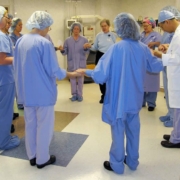
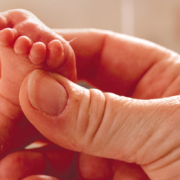



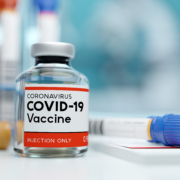
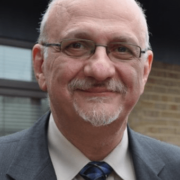
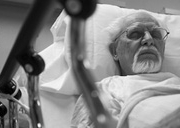


Leave a Reply
Want to join the discussion?Feel free to contribute!